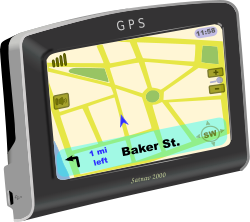A lot of people assume that solopreneur is synonymous with “startup,” and that nobody would actually have a solopreneur business over the long haul. People

who aren’t familiar with this way of doing business assume that you’d only have a one-person shop until you could hire a second person. This is far from the truth!
There are already lots of solopreneurs you may know – fitness trainers, massage therapists, hair stylists, consultants, artists, personal stylists, house cleaners, handymen/women, and dog trainers are just a few of the businesses that often operate as solopreneurs. According the US Census bureau, over three-quarters of the businesses in the US are solopreneurs! (source: US Census Bureau).
Some businesses may not lend themselves to the solopreneur model, but many do. Some solopreneurs used outsourced help in the form of contractors. The key to having a solopreneur business you can sustain over the long haul is in how you set it up.
Here’s a few ways to make sure your solopreneur business works for you over the long haul:
- Make sure you love what your company (you) do. It’s hard to coast in a solopreneur business. If you don’t love it, find something new.
- Focus on what you do best, both in what you do for customers and in your business activities. Use promotion strategies you find fun and energizing. Consider outsourcing tasks you aren’t good at or dread doing.
- Always be learning! This applies not just to the skill or craft you do for customers but also to your business skills. The world is always changing, and you have to evolve to keep up.
- Look for ways to systematize anything you’ll be doing more than once. Write down your best guess at a process before you do the task the first time and revise it with each subsequent time you do the same task.
- Automate when possible! The better you can use your time the more profitable you can be.
The bottom line is don’t discount solopreneurship as a destination, not a stopping point. Being a solopreneur can be a journey that lasts many years. There may be a limit to how big you can grow or how much money you can make with your solopreneur business, but those limits may be high enough that it doesn’t matter to you.
Tell me about your solopreneur business in the comments. How do you keep your business going over the long haul?






